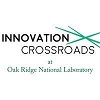
IC COHORT 5_4: Senior year at UC Berkeley sparks Caleb Alexander’s entrepreneurial genes
 (EDITOR’S NOTE: This is the fourth article in a series introducing the innovators in Cohort 5 of “Innovation Crossroads.” Each founder will have an article focused on his or her company. Cohort 5 started “Innovation Crossroads” on June 21. Look for the rest of the series in the coming weeks. And, if you are interested, participants in Cohort 5 will be in the spotlight later this week in the “Innovation Crossroads Showcase” that is part of “Innov865 Week.” Details can be found here.)
(EDITOR’S NOTE: This is the fourth article in a series introducing the innovators in Cohort 5 of “Innovation Crossroads.” Each founder will have an article focused on his or her company. Cohort 5 started “Innovation Crossroads” on June 21. Look for the rest of the series in the coming weeks. And, if you are interested, participants in Cohort 5 will be in the spotlight later this week in the “Innovation Crossroads Showcase” that is part of “Innov865 Week.” Details can be found here.)
By Kailyn Lamb, Marketing Content Writer and Editor, PYA
When he was younger, Caleb Alexander received some advice from a friend’s dad: if you see something that doesn’t work well, write it down. It could become an idea for a future company.
Over the years, this led Alexander to several ideas for potential companies. Eventually, he founded DayLyte Batteries, a member of Cohort 5 of “Innovation Crossroads.” But it wasn’t until his senior year at the University of California at Berkeley that entrepreneurship became a real goal.
“There’s a big start-up kind of entrepreneurial environment over there,” he said. “My senior year I had gotten to a point where I knew enough to come up with ideas for companies, but I knew I did not know enough to know if they would work or not.”
That meant the next step in his journey was to get a doctorate in Chemical Engineering from the University of Texas in Austin. While he was there, he discovered the potential for a metal-air battery. He wanted to create a battery that would make electric vehicles a more viable commercial option.
After turning to the Periodic Table for inspiration and narrowing down elements that would help produce a more energy-dense battery, Alexander landed on sodium and air. While other elements would have worked, Alexander said that their chemistries would have brought on limitations that made manufacturing a battery difficult and not practical in a commercial market.

Alexander said that while he was finishing his Ph.D., he kept turning to other ideas first. “I kept trying to kill it, and I just couldn’t,” he joked about the battery idea. “I could always find a solution for every problem I found.”
His goal was to start a company that would impact climate change but would also have a large positive impact on users. Because batteries are not energy-dense enough or cheap enough to make a difference in the electric vehicle market, Alexander decided to start there.
“There’s a lot of serendipity with designing this battery because we just so happen to live on a planet with oceans full of sodium, and that just happens to be practically the most energy-dense battery chemistry you’d be able to have,” he said. “You have a chemistry that’s much more energy-dense, doesn’t have a supply chain scalability problem, and should be capable of higher power.”
Alexander describes his vision of a sodium-air battery as “half battery, half fuel cell.” Because the elements needed to make it are much more common, it can be made at a lower cost than the current lithium-ion batteries that are on the market. Electric vehicles are just one thing Alexander has set his sights on. He said the batteries could also be used for renewable energy storage, drones, and potentially, air travel.
For airplanes, Alexander said you need a battery that stores around 400-watt hours per kilogram. Based on the modeling and estimations he has done for DayLyte Batteries, his sodium-air battery will be able to store around 500-watt hours which could be used on domestic flights.
“It’s hard to have an energy source that’s as energy-dense as diesel fuel,” he said of replacing traditional airplane fuel. “With a battery, you’re always carrying around your components, with diesel fuel you burn it, and then it’s gone.”
For research at Oak Ridge National Laboratory through “Innovation Crossroads,” Alexander said he is most excited about the roll-to-roll processing facilities available to innovators, as well as networking with the people there that work in his field.
“I’ve been designing this battery to scale up from day one, and roll-to-roll processing is great for mass-producing materials but it’s very capital intense, so it’s typically out of the purview of startups,” he said.
Like what you've read?
Forward to a friend!

